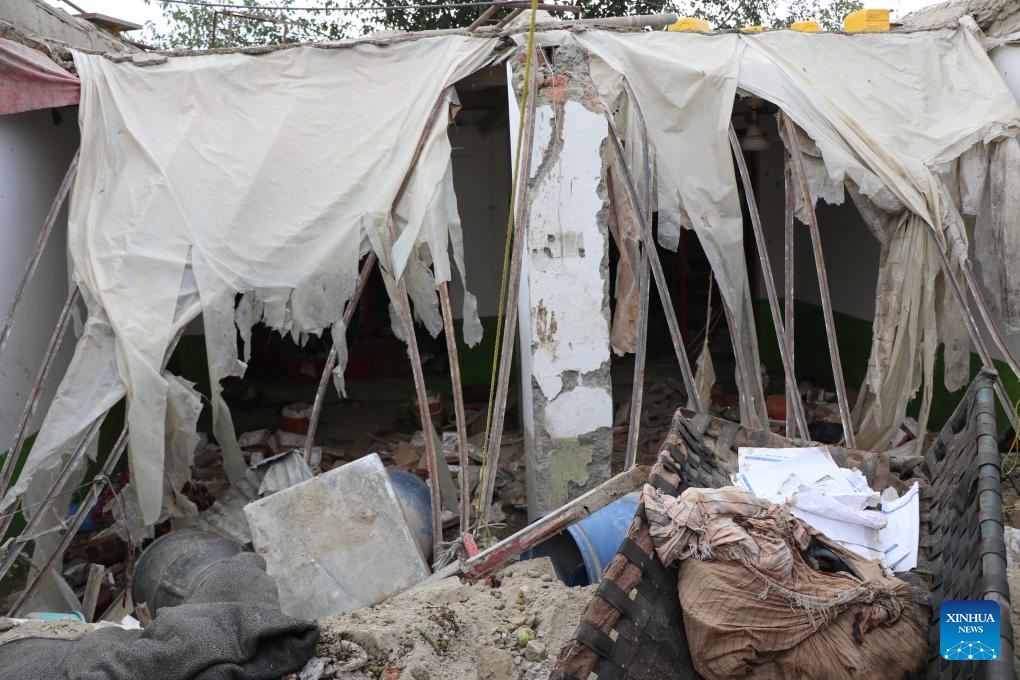Two years ago today, the world witnessed the hasty pullout of US troops from Afghanistan, which not only marked the comprehensive failure of the US military and political counter-terrorism in Afghanistan, but also proved once again that military intervention, political infiltration and democratic transformation in other countries do not work and only bring instability and disaster, Wang Wenbin, the Chinese Foreign Ministry spokesperson, said on Tuesday.
The US finished its withdrawal efforts from Kabul, Afghanistan, the Pentagon said on August 30, 2021, marking the end of a two-decade conflict and the longest war in US history that began not long after the terrorist attacks of September 11, 2001.
Claiming to be in pursuit of Osama bin Laden, the alleged mastermind of the 9/11 attacks, the US-led military forces invaded Afghanistan and ousted the Taliban within weeks of the terrorist attacks in 2001, according to the Xinhua News Agency.
Over 2,400 US troops have been killed in Afghanistan over the past two decades, with 20,000 others wounded, according to the Pentagon. Estimates showed that over 66,000 Afghan troops have been killed, and over 2.7 million people have been forced to leave their homes.
Over the past two years, the Chinese people have been following closely the safety and security of the Afghan people, their future and their destiny. As the largest neighbor, China has been helping the reconstruction of the Afghan stability bureau in a responsible and constructive way and promoting the political settlement process of the Afghan issue, Wang noted.
China has provided a large amount of material assistance to Afghanistan through land, sea and air transportation channels, expanded imports of high-quality agricultural products such as pine nuts, granted zero-tariff treatment to 98 percent of taxable products, steadily promoted practical cooperation between the two sides, and helped Afghanistan enhance its capacity for independent development.
Over the past two years, with the active support of Afghanistan’s neighbors and other countries in the region, the situation in Afghanistan has achieved a smooth transition and the destiny of the country has historically returned to the hands of the Afghan people, said the spokesperson, adding that the Afghan Interim Administration has taken a series of practical measures to restore the economy, ensure people’s livelihood, promote drug control, combat corruption and improve public security, which should be viewed objectively and fairly.
At the same time, the international community still has some expectations for Afghanistan to build a broad-based and more inclusive regime structure that protects the rights and interests of all people, including female minorities. The Chinese side hopes that the interim government will take positive measures to better respond to the expectations of the Afghan people and the international community.
However, some countries have imposed sanctions on Afghanistan by cutting off aid and freezing assets. According to the UN, the number of people in need of humanitarian assistance in Afghanistan has doubled from 14.4 million to 29.2 million.
To achieve long-term peace and stability in Afghanistan, the humanitarian situation must first be addressed, Wang noted, adding that relevant countries should earnestly draw lessons from the changes in Afghanistan, implement their assistance commitments, and ensure that all frozen assets are used as soon as possible to meet the urgent needs of the Afghan people.
The terrorist forces currently entrenched in Afghanistan still pose a major threat to regional and global security, and the world expects Afghanistan to fulfill its commitment to eradicate terrorism. The international community needs to strengthen bilateral and multilateral counter-terrorism and security cooperation, support Afghanistan in taking a comprehensive approach to addressing the issue, and realize lasting peace, stability and development, he said.
(Global Times)




